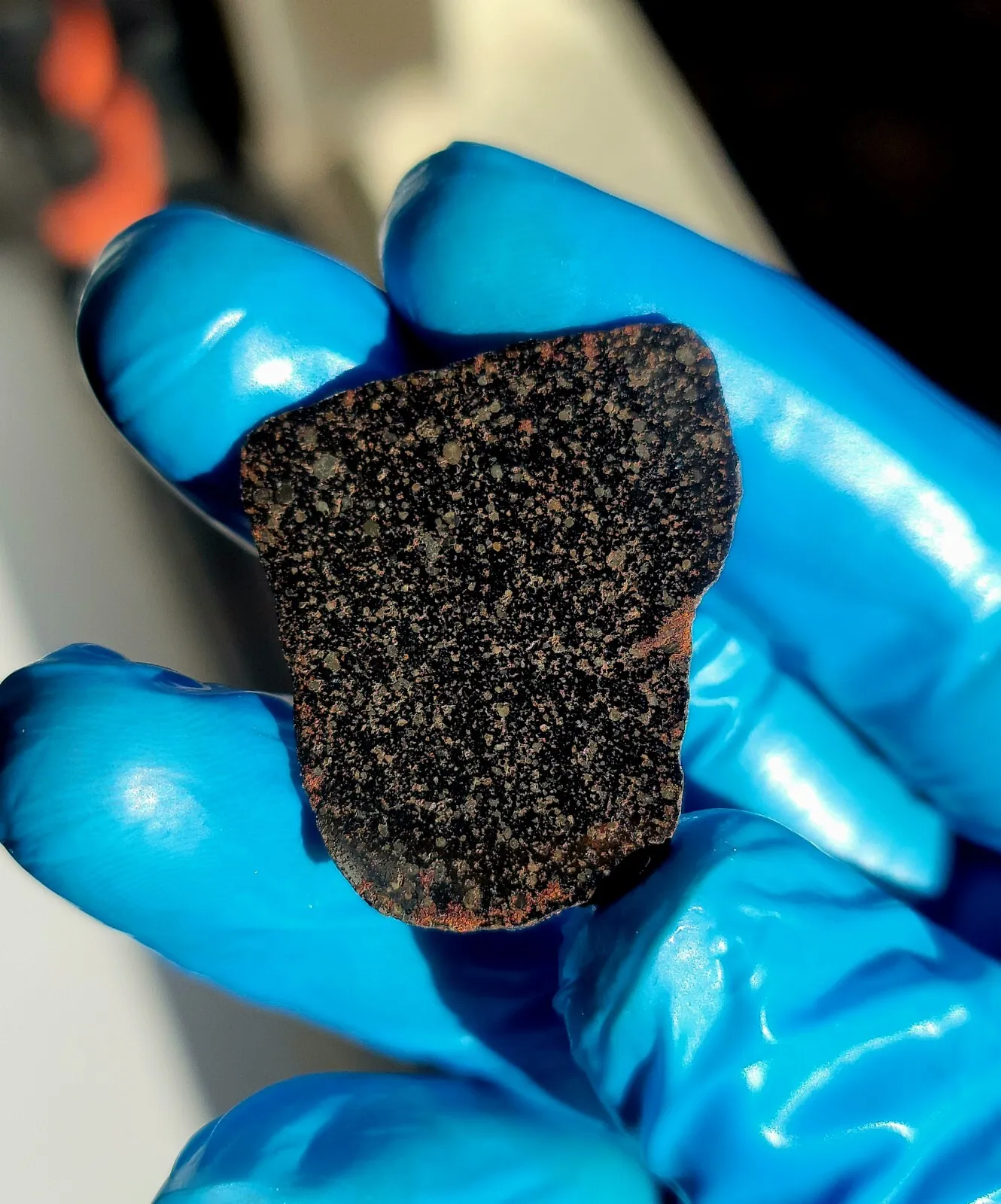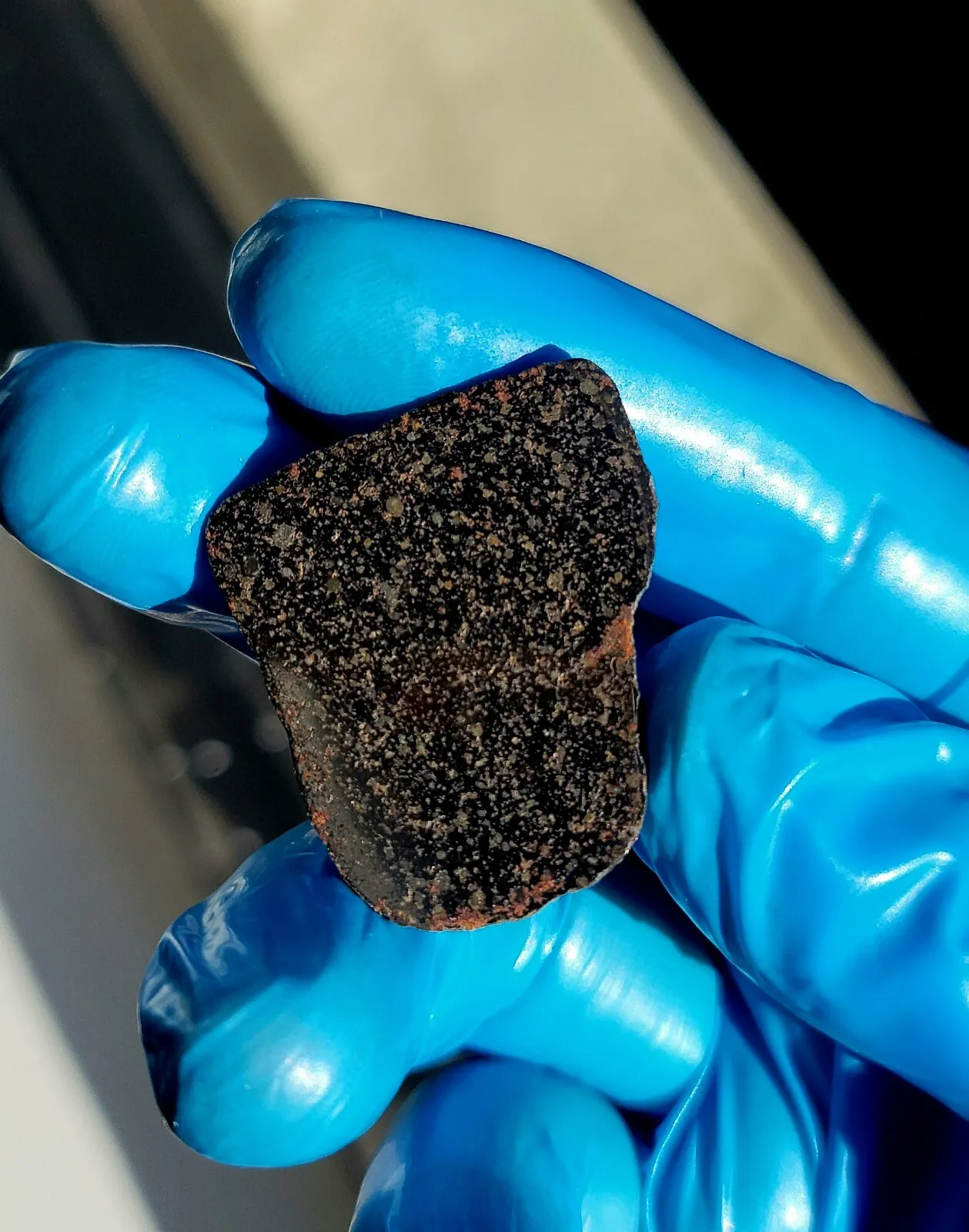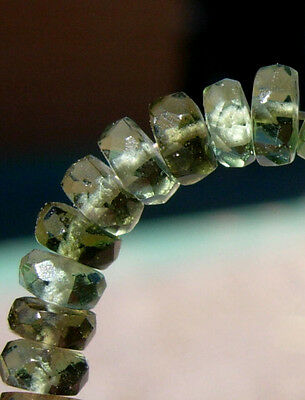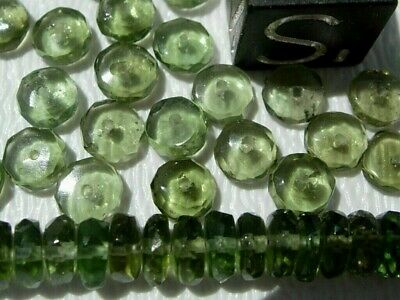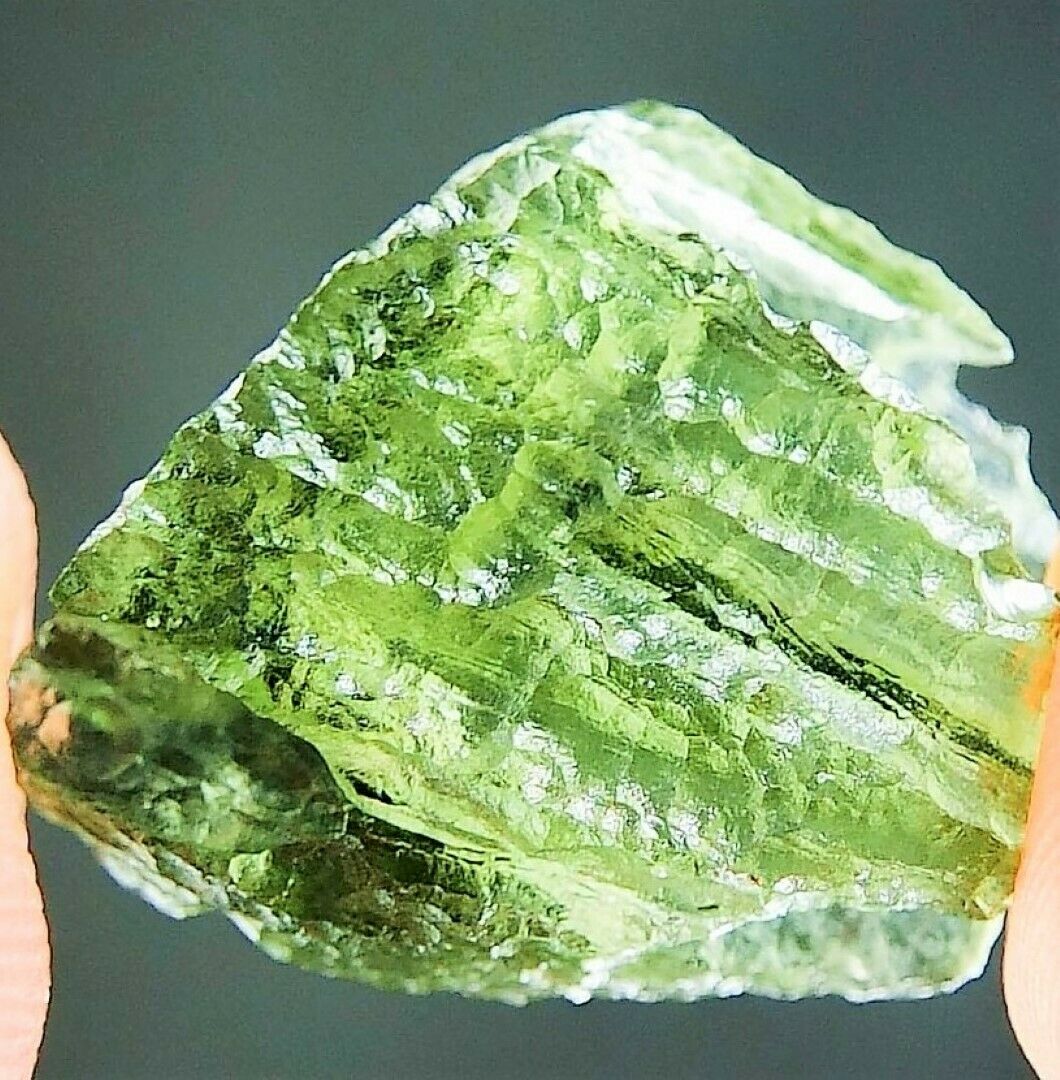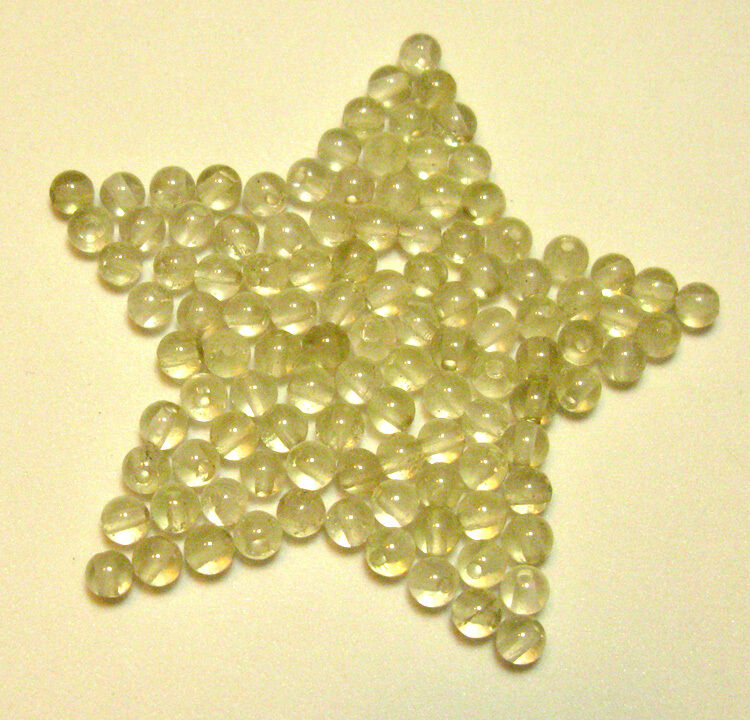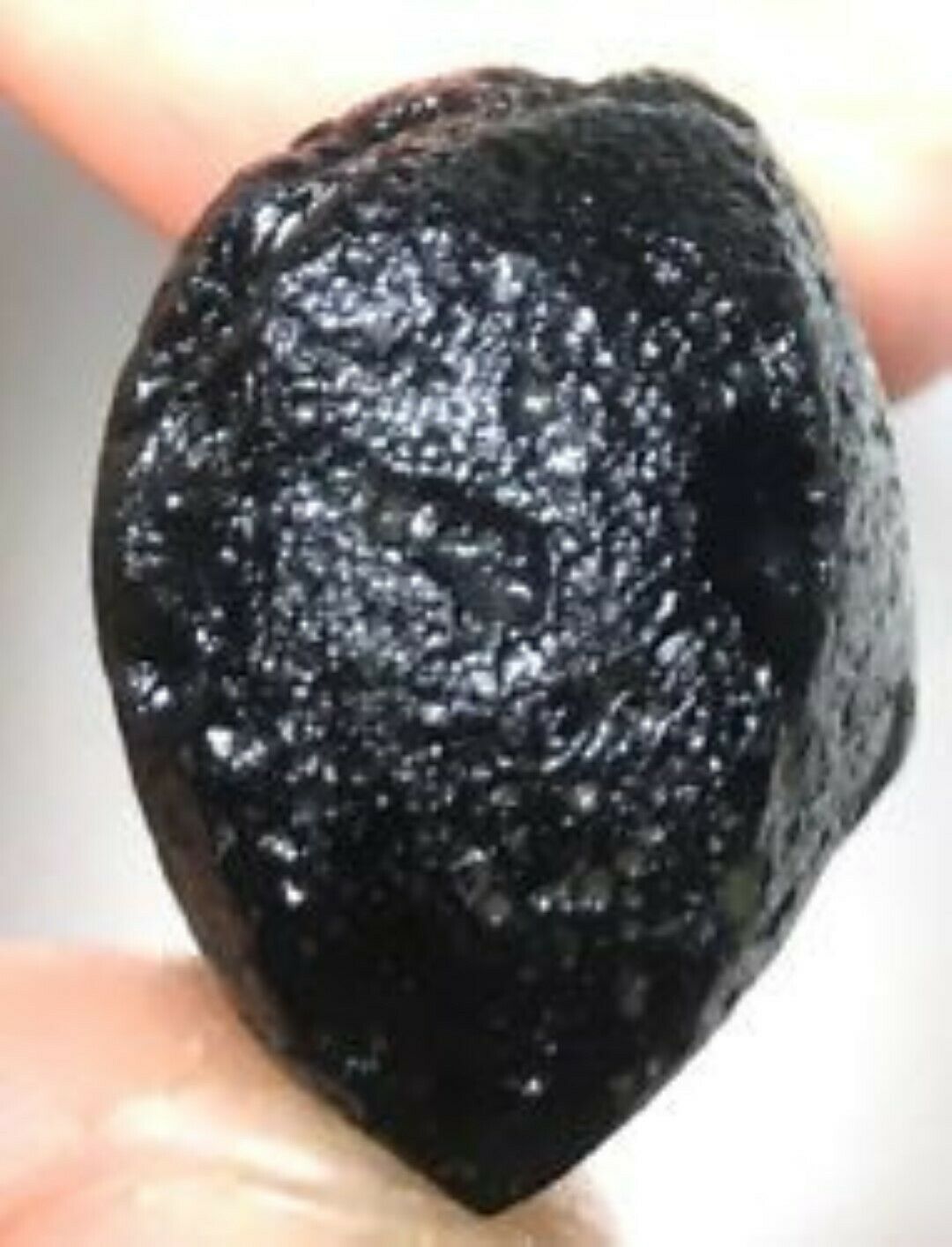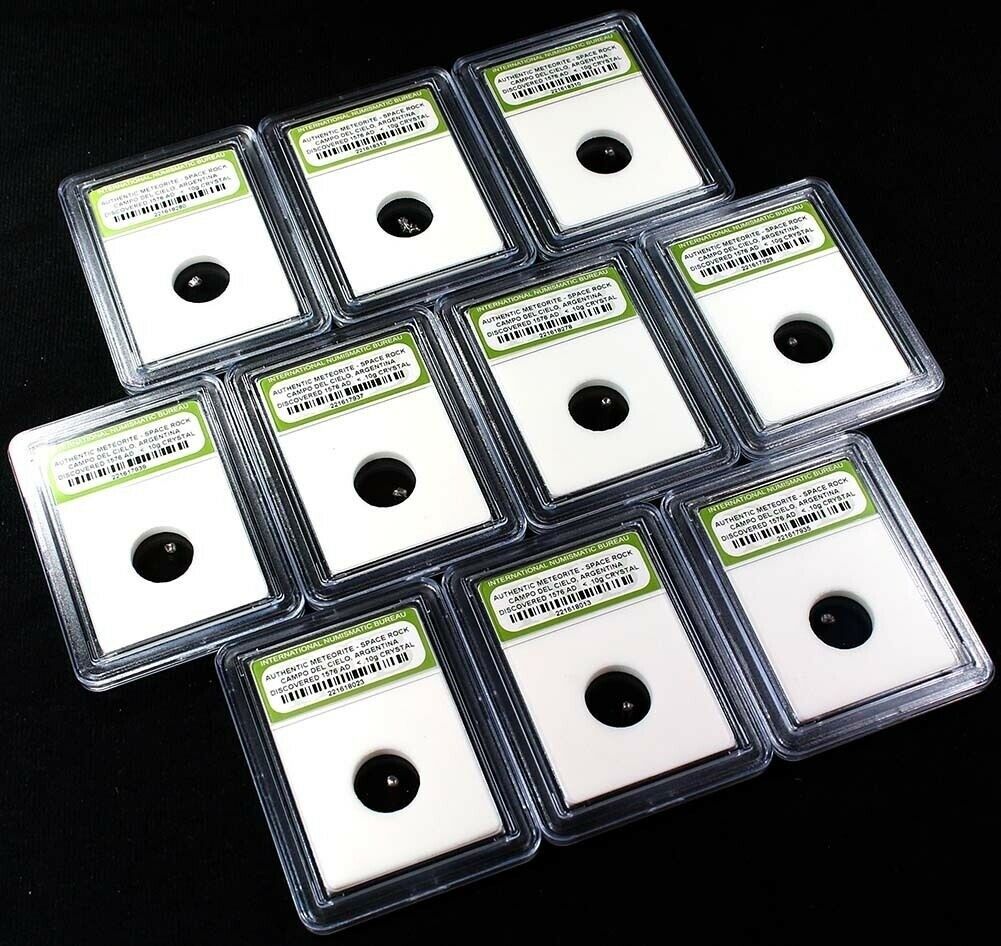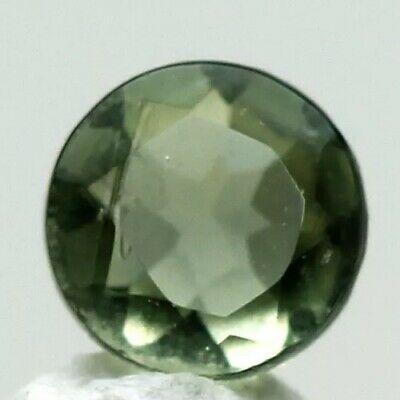-40%
Meteorite**NWA 13202, Chondrite-UNG.**4.653 gram slice, ULTRA RARE UNGROUPED!!!
$ 5.01
- Description
- Size Guide
Description
Hello up for sale is NWA 13202 classified as an Ultra rare Chondrite Ungrouped, (Metal-Rich)!!!! This gorgeous slice weighs 4.653 grams, with a mirrior polish to one side and other side has an uneven cut... with interior surfaces exhibit dominant fresh metal (with minimal staining) and subordinate interspersed silicate-rich regions. The specimen consists of two distinct interspersed components with overall proportions of ~75% metal and ~25% silicate-rich material. Metal-rich regions (up to 0.5 mm) are composed of 95% kamacite with 5% taenite, and contain fine grained metal plates ranging from 100 to 500 μm in diameter. Silicate-rich regions (up to 0.5 mm) contain a variety of chondrules (with apparent diameters ranging from ~100 to 1500 μm). Most chondrules are glass-bearing (PP, PO, POP and barred pyroxene types) but some are cryptocrystalline. Accessory phases in silicate-rich regions include kamacite, taenite, chromite, troilite, merrillite and chlorapatite. This meteorite comes with 2 COA cards, Streaming Meteorites and Mark Lyon and display case. Thanks for your interest and take care.Name: Northwest Africa 13202
This is an OFFICIAL meteorite name.
Abbreviation: NWA 13202
Observed fall: No
Year found: 2020
Country: (Northwest Africa)
Mass: 396 g
Northwest Africa 13202 (NWA 13202)
(Northwest Africa)
Purchased: 2020 Jan
Classification: Ungrouped chondrite
History: A very dense, metal-rich specimen, found as two naturally-broken pieces which fit together, was purchased in January 2020 by Mark Lyon from a dealer in Zagora, Morocco.
Physical characteristics: The broken surfaces on both pieces are coated by rusty terrestrial weathering products. Polished interior surfaces exhibit dominant fresh metal (with minimal staining) and subordinate interspersed silicate-rich regions.
Petrography: (A. Irving, UWS and J. Boesenberg, BrownU) The specimen consists of two distinct interspersed components with overall proportions of ~75% metal and ~25% silicate-rich material. Metal-rich regions (up to 0.5 mm) are composed of 95% kamacite with 5% taenite, and contain fine grained metal plates ranging from 100 to 500 μm in diameter. Silicate-rich regions (up to 0.5 mm) contain a variety of chondrules (with apparent diameters ranging from ~100 to 1500 μm). Most chondrules are glass-bearing (PP, PO, POP and barred pyroxene types) but some are cryptocrystalline. Accessory phases in silicate-rich regions include kamacite, taenite, chromite, troilite, merrillite and chlorapatite.
Geochemistry: Olivine (Fa24.6±3.9, range Fa15.5-28.0, N = 16), low-Ca pyroxene (Fs15.8±1.4Wo1.5±0.9, range Fs14.6-19.6Wo0.6-3.5, N = 11), pigeonite (Fs14.8-15.1Wo8.3-9.1, N = 2), kamacite (Ni = 4.8-7.0 wt.%, N = 7), taenite (Ni = 16.5-21.3 wt.%, N = 3).
Classification: Chondrite (ungrouped, metal-rich). Paired with NWA 12273 and NWA 12379.
Specimens: 20.0 g including one polished slice at UWB; remainder with Mr. M. Lyon.
Data from:
MB109
Table 0
Line 0:
Place of purchase:Zagora
Date:P 2020 Jan
Mass (g):396
Pieces:2
Class:Chondrite-ung
Shock stage:S2
Weathering grade:W0/1
Fayalite (mol%):24.6±3.9
Ferrosilite (mol%):15.8±1.4
Wollastonite (mol%):1.5±0.9
Classifier:A. Irving, UWS, and J. Boesenberg, BrownU
Type spec mass (g):20.0
Type spec location:UWB
Main mass:M. Lyon
Comments:Work name RC128.1; submitted by A. Irving
